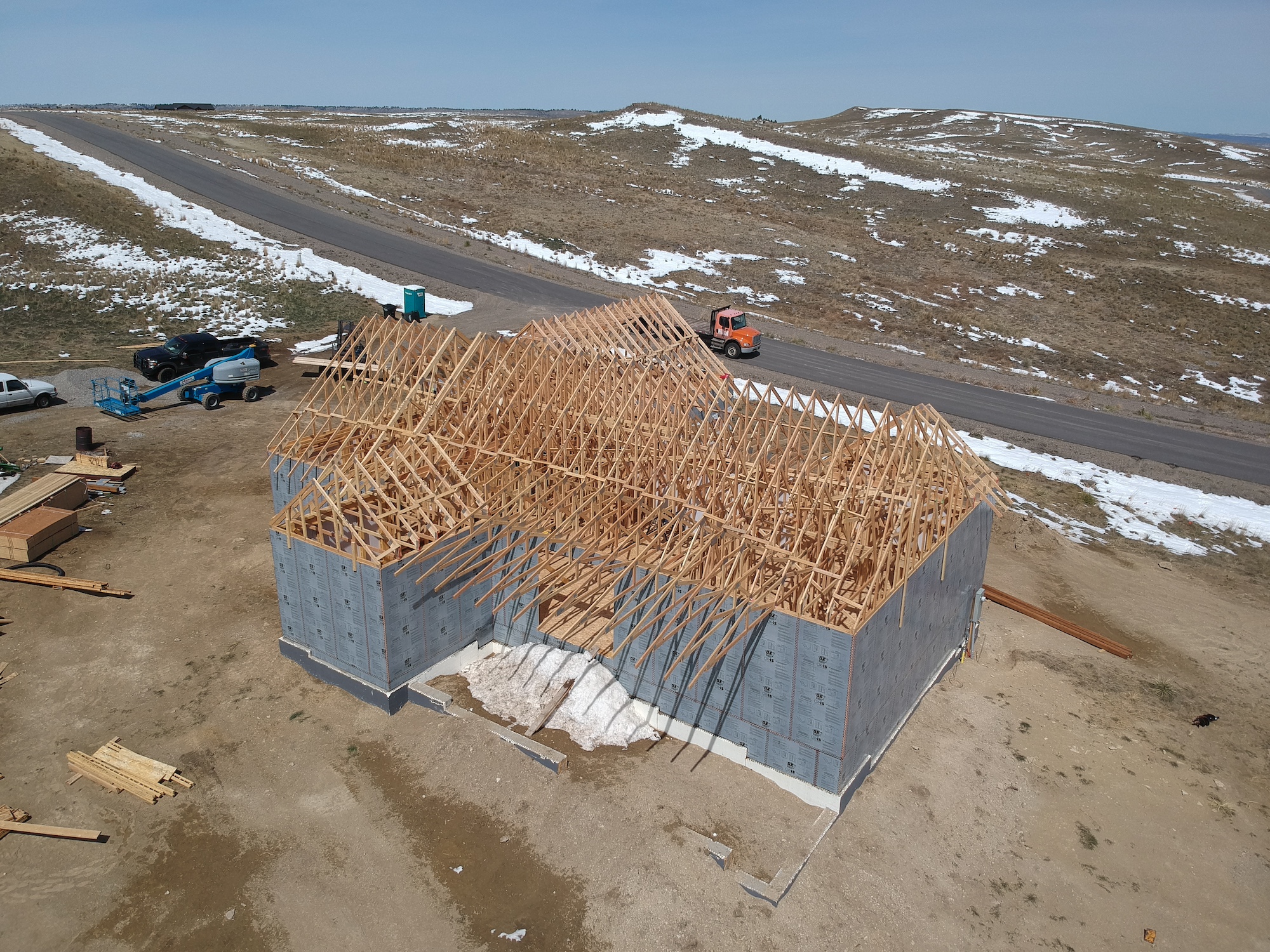CONTACT OX
TO LEARN MORE
Give us a call at 800-345-8881 or fill out the form below
and we’ll get back to you within two business days.

For any construction project in the 21st century, achieving energy-efficiency is a prime directive. Among the arsenal of tools available to builders charged with constructing exterior walls, insulated sheathing stands out as a key component in enhancing overall thermal performance. These integrated materials, such as the innovative solutions offered by OX Engineered Products, play a vital role in optimizing energy efficiency, providing structural strength, and enhancing comfort levels for occupants inside.
Total Thermal Performance
Insulated sheathing is designed to enhance the performance of a building’s thermal envelope while adding structural strength. By providing an additional layer of continuous insulation on the outside of the exterior walls, it helps reduce thermal bridging, which occurs when heat is transferred through materials with higher conductivity, such as wood studs or metal framing. This results in more consistent indoor temperatures, reduced heat loss in winter, and minimized heat gain in summer. When installed with the proper seam tapes and used in conjunction with thermally efficient windows and doors, the material can significantly bolster a building’s overall energy efficiency.
Furthermore, integrated insulated sheathing materials can serve as a moisture barrier as well, protecting the building from water infiltration and condensation. This not only improves the long-term durability of the structure but also enhances indoor air quality by preventing mold and mildew growth.
In addition to its thermal and moisture benefits, insulated sheathing – when installed continuously and properly – contributes to the overall air tightness of a building envelope. This air sealing effect helps reduce the infiltration of outside air, preventing energy loss associated with unwanted drafts. When combined with other energy-efficient building practices, such as the proper sealing of joints and penetrations, insulated sheathing can play a pivotal role in achieving a high-performance building envelope that meets or exceeds energy code requirements.
These materials specifically help meet the 2021 International Energy Conservation Codes and can assist builders and owners in achieving significant federal rebates such as the 45L tax credits.
Integrated Solutions: The OX-IS Advantage
A prime example of a high-performance integrated material is OX Engineered Products’ OX-IS insulated sheathing system. While OX-IS offers exceptional thermal insulation, its benefits go beyond just enhancing R-values. The system is designed to bolster the performance of the overall building envelope, contributing to improved energy efficiency, indoor comfort, and the health of the structure.
Moreover, OX-IS is easy to install, reducing construction time and labor costs. Its lightweight nature makes it ideal for a wide range of applications, from residential to multifamily and commercial buildings. Additionally, OX-IS is an environmentally friendly material made with more than 70% post-consumer recycled materials, contributing to greener structures.
See the Stats
According to a study by the Department of Energy, buildings account for approximately 40% of total U.S. energy consumption. By incorporating insulated sheathing, builders can do their part to help reduce this figure. The energy efficiency of the built environment is crucial to achieving global sustainability goals, and selecting the right products can have a big impact.
On a micro scale, per individual structure, products such as OX-IS can reduce ACH50 blower door test results by 15 to 20 percent, some homes and buildings even greatly exceeding this number. In addition, the 4-in-1 insulated sheathing material has proven to reduce heating and cooling costs by anywhere from 20 to 40 percent, allowing owners to choose downsized HVAC systems when outfitting their home with a new unit. This, in itself, can save owners $200 to $350. Finally, when compared to using uninsulated OSB, 1-inch OX-IS delivers a 1,100% increase in R-value for the structure.
Ultimately, selecting insulated sheathing materials leads to substantial energy savings over the life of a building and helps to create a reduced carbon footprint.
Building Better
Insulated sheathing plays a crucial role in improving the thermal performance of buildings. To meet the most stringent code requirements set by the International Code Council, many builders are using insulated sheathing in conjunction with standard batt or spray foam for even greater thermal performance.
Integrated products such as OX-IS are helping builders nationwide meet these rising energy demands, while giving a much-needed boost to a building’s air and moisture resistance.
By leveraging these innovative, integrated products, the industry can continue to create sustainable structures that meet the evolving demands of modern construction.
